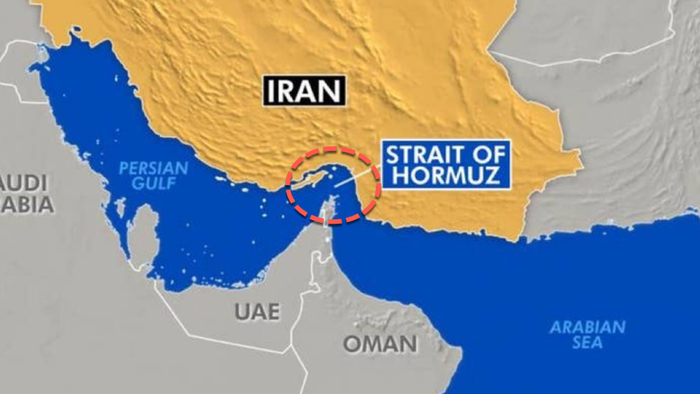JPMorgan’s projection of Brent crude prices reaching triple digits could soon become a reality due to escalating conflict risks in and around the Strait of Hormuz. This crucial maritime chokepoint, responsible for about 20% of global oil trade, is facing increased tensions that could disrupt energy flows worldwide and lead to a surge in prices.
The most alarming indication of potential maritime disruptions in the region came from a statement by former Iranian Economy Minister Ehsan Khandouzi on X. Despite being unofficial, the timing and significance of the statement suggest a broader sentiment within the Iranian regime or a warning of potential actions.
“Starting tomorrow, for 100 days, no oil tankers or LNG cargoes will be allowed to pass through the strait without Iran’s approval,” declared Khandouzi. He emphasized that timely implementation of this policy is crucial to avoid internal conflict.
With the Islamic Revolutionary Guard Corps (IRGC) showing increased activity in the area, the likelihood of IRGC actions targeting commercial shipping in the strait is growing. This escalation could trigger the realization of JPMorgan’s forecast of Brent crude prices reaching $120–$130 per barrel.
According to JPMorgan, a blockade of the Strait of Hormuz would halt oil trade in the region, significantly driving up oil prices. The strait, only 21 miles wide at its narrowest point, connects the Persian Gulf with the Indian Ocean and facilitates a substantial portion of global oil and LNG trade.
Recent reports of widespread GPS jamming across the strait have raised further concerns about disruptions in the area. A recent maritime incident involving crude oil tanker Front Eagle colliding with the tanker Adalynn has heightened fears of a potential ecological disaster.
The Iranian regime’s focus on the world’s most critical maritime chokepoint has put it in a precarious position. President Trump’s discussions with his national security team and Israeli Prime Minister Netanyahu indicate a growing concern over the situation.
The looming question is whether the U.S. will intervene in the conflict. If it does, a disruption in shipping through the Strait of Hormuz is likely, leading to significant upheaval in global energy markets.
Loading…

